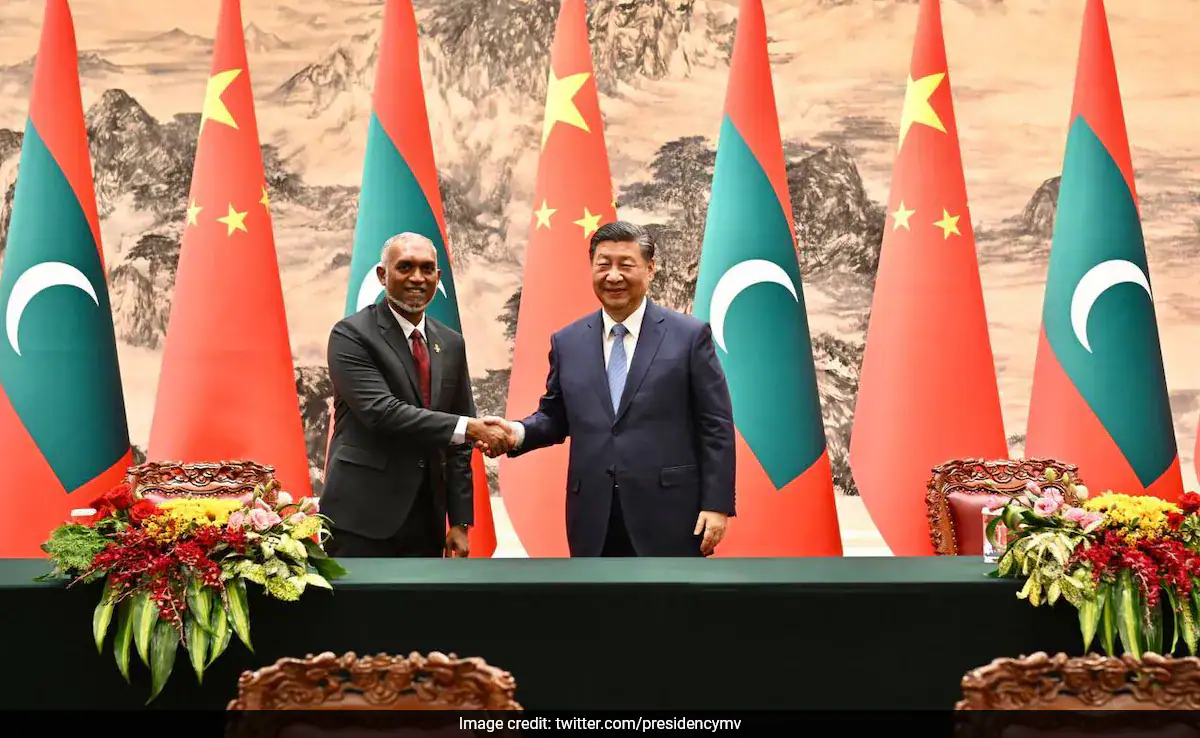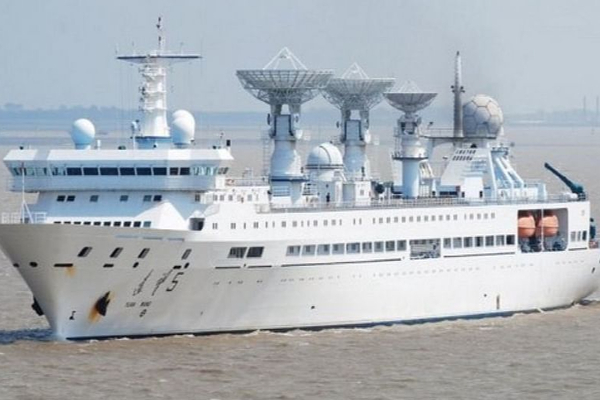President Ranil Wickremesinghe is scheduled to visit New Delhi this week. In Sri Lanka, it is customary for the president’s first foreign visit to be to India. India serves as the second Sri Dalada Maligawa for Sri Lanka’s presidents. Wickremesinghe, who has been in office for a year, has a meeting scheduled with Modi.
Since the end of Sri Lanka’s civil war, we cannot claim that relations between Colombo and New Delhi have been smooth sailing. In his road map titled ‘Integrated Country Strategy for Sri Lanka Diplomatic Missions in India,’ Sri Lanka’s High Commissioner to India, Milinda Moragoda, referred to this as a ‘trust deficit.’ Moragoda presented this road map to President Gotabaya Rajapaksa before he assumed office in Delhi.
Why has the trust deficit between the two countries been increasing? The closeness between Colombo and Beijing is a fact. It was concealed in Moragoda’s road map. India cannot tolerate China’s aggressive presence in its backyard, which threatens its national security. When Sri Lanka makes imprudent foreign policy decisions, Indian intervention is inevitable. As a regional superpower, India’s concerns regarding security are always justifiable. Based on this, Indian Interventions are always justifiable.
Wickremesinghe now seems as the saviour of the crisis-hit island nation. He attempts to demonstrate that he is the only competent leader who can steer the nation in the correct direction. The question is how committed he is to rectify a previous strategic mistake.
China’s 99-year lease of the strategically vital port of Hambantota was a grievous strategic mistake. A 99-year lease of a nation’s asset by another nation is equivalent to selling it in real terms. At the time, the Hambantotaagreement surprised the Indian strategic community and the United States.
Following the announcement of the port agreement with China, many pointed out that the Hambantota port has the potential to become a military base for the People’s Liberation Army. Former Indian foreign secretary Shivshankar Menon expressed apprehension, suggesting that the investment in Hambantota could only be justified from a national security perspective, implying the possible involvement of the People’s Liberation Army. Echoing New Delhi’s concerns, in 2018, US Vice President Mike Pence stated, “Beijing pressured Sri Lanka to deliver the new port directly into Chinese hands. It may soon become a forward military base for China’s growing blue-water navy.
As expected, Wickremesinghe emphasised, “There are no foreign naval bases in Sri Lanka; some people are seeing imaginary Chinese Naval bases.” His comments came days after Pence’s warning regarding China’s strategic use of debt. However, it is not imaginary that the Chinese ‘spy ship’ Yuan Wang 5 docks in Hambantota.
Nothing in geopolitics can be considered imaginary. It is impossible to predict when and how pawns will be moved on the grand chessboard. In addition, the port’s proximity to major sea lanes and Indian air bases makes it vulnerable. Given this context, how can we argue that a Hambantota port will not be used for military purposes by the PLA?
The China-funded deepwater port in Gwadar, Pakistan, illustrates China’s intent to use its funded ports for military expansion in the Indian Ocean Region. There are similarities between Gwadar andHambantota. Thus, the investments for both ports are purely strategic and not intended to create a monetary return. In such a scenario, the PLA could target the Hambantota port. According to one of the PLA officers, the food is already on the plate; we’ll eat it whenever we want.
Another example is Tanzania. Bagamoyo in Tanzania, where China planned to invest $10 billion in a new deepwater port with a 99-year lease, has also been suggested as another potential location for Chinese-controlled facilities. In April 2020, the Tanzanian president reportedly cancelled the deal after China refused to renegotiate its terms, but the deal may now have been revived.
Gotabaya Rajapaksa criticised the Hambantota port deal. He identified this as a mistake. In his first interview after becoming president in 2019, Rajapaksa told Indian Journalist and Defence Analyst Nethin S. Gokhle that the previous Government gave it a 99-year lease, and even though China is a good friend of ours and we need their assistance for development, I am not afraid to say that was a mistake. He also stated that he would request that the Chinese renegotiate the joint venture. However, he did not keep his word.
The political elite of Sri Lanka always responds the same way to questions about China. Wickremesinghe is not exceptional in this regard. In a recent interview with France 24 Channel, he stated that The Chinese have been there for about 1,500 years, and so far, there has been no military base. There is speculation about the Hambantota harbour. It has been given out to Chinese Merchants, but the security is controlled by the Sri Lankan government. We have no military agreement with China; there won’t be any military agreements, and I do not think China will enter into one, and we cannot allow Sri Lanka to be used as a base for any threats against India, he added. However, no one ever says in international power politics, “I do not think.”
It is no secret that China aspires to become the hegemonic power in Asia. In this context, China is the only power capable of challenging the International Rule-Based International Order led by the United States. Given this context, China’s 1500 years of story is pointless. This is the new China of Xi Jinping.
Sri Lanka is undoubtedly included in China’s hegemonic agenda. Therefore, the possibility of Hambantota port being used for Chinese military use cannot be ruled out as merely imaginary. This is detrimental not only to India’s national security but also to peace in South Asia. Recently, the Department of Defence reported that Beijing has considered or inquired about establishing bases or logistics facilities in a number of IOR nations, including Sri Lanka. The Hambantota Port Agreement should be renegotiated, as Rajapaksa stated. Will Wickremesinghe, who is responsible for rectifying Rajapaksa’s strategic blunders, rectify his own strategic mistake?




